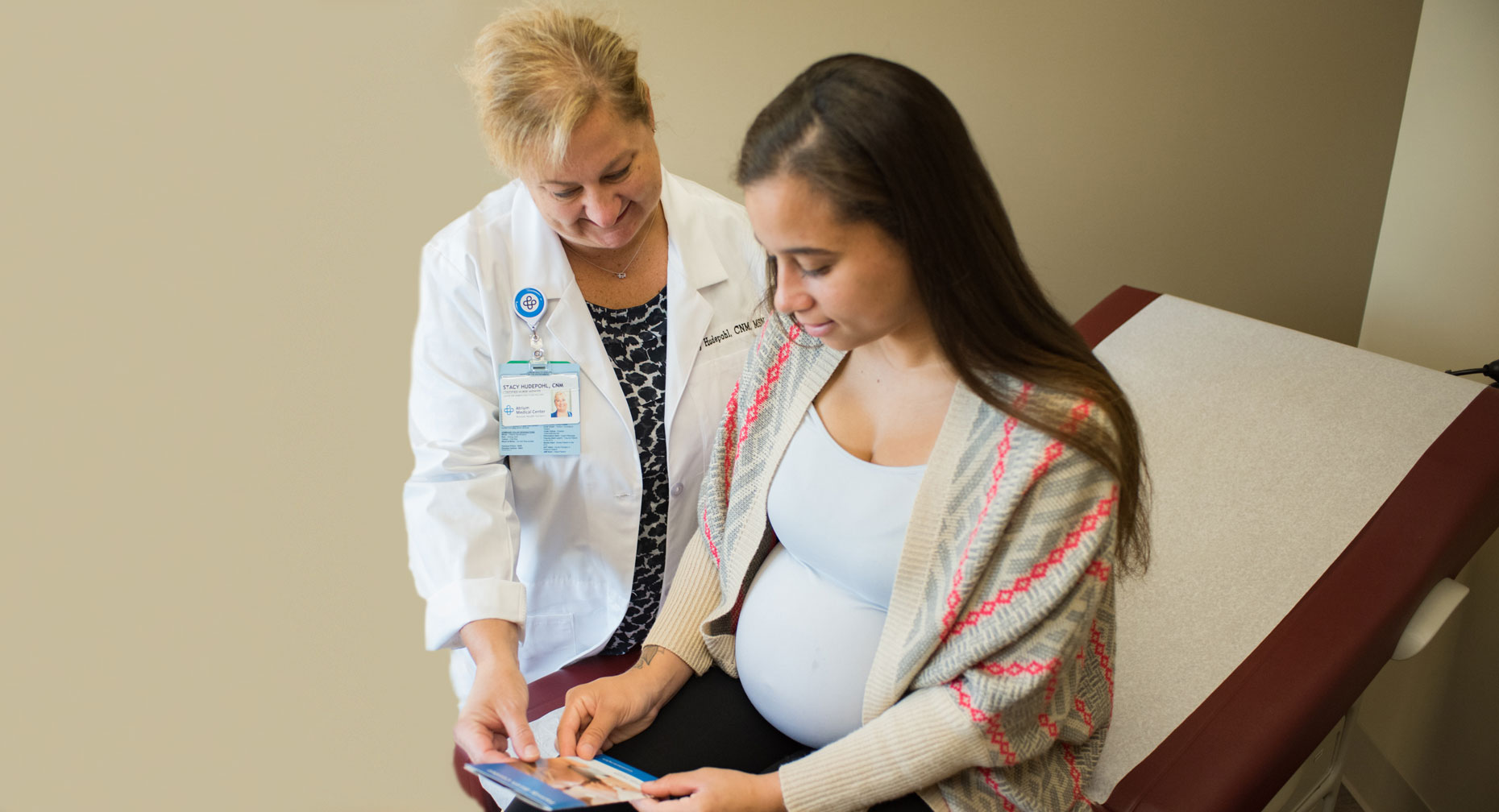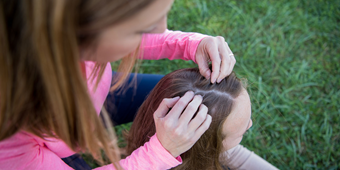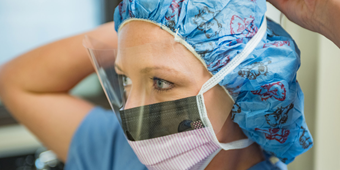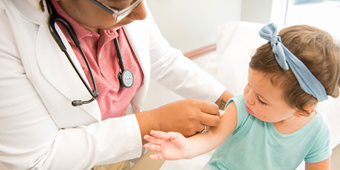Pregnant with an STD: Protect, Don’t Infect

Find Your Perfect Match
Answer a few questions and we'll provide you with a list of primary care providers that best fit your needs.
Sexually transmitted diseases (STDs) are bacterial and viral infections that can affect the health of pregnant women and their unborn babies. An infected mom can pass some STDs to her baby during pregnancy or during birth.
STDs include chlamydia, hepatitis, herpes, HIV and syphilis. If you are infected with an STD and you become pregnant, that infection can put both your pregnancy and your baby at risk.
Moms with STDs are at risk for premature birth and infection in the uterus after birth, says the U.S. Office on Women’s Health.
Babies exposed to STDs during development and delivery may also be affected in other ways, including:
- Low birth weight
- Infections of the eye or blood
- Pneumonia
- Acute hepatitis
- Meningitis
- Brain damage
- Uncoordinated body movements
- Blindness
- Deafness
- Chronic liver disease
- Stillbirth
How STDs Affect You and Your Baby
 STDs are preventable medical conditions that affect pregnancy. Bacterial STDs can be treated and cured with antibiotics. Viral STDs cannot be cured, but treatments can reduce symptoms.
STDs are preventable medical conditions that affect pregnancy. Bacterial STDs can be treated and cured with antibiotics. Viral STDs cannot be cured, but treatments can reduce symptoms.
Treatments for all STDs can help you manage the condition during pregnancy and after birth. They can also reduce the chance that you’ll pass the infection to your baby. It’s important to know the risks that STDs pose to your health and your baby’s.
- Chlamydia is a bacterial infection that can be treated with antibiotics. The condition often does not cause symptoms and you may not know you have it. If left untreated, chlamydia increases the risk of ectopic pregnancy (outside the uterus) and infertility for women. Chlamydia passes from mother to baby as the baby moves through the birth canal.
- Syphilis can be treated with antibiotics. It causes mild symptoms that seem to go away on their own, but the infection remains and can cause series illness later on. Syphilis crosses the placenta to infect the baby in the uterus. Untreated syphilis in pregnant women results in infant death up to 40 percent of the time.
- Hepatitis. There are different types of hepatitis infections. Hepatitis is caused by a virus that affects the liver.
- Hepatitis B is the most common type that happens in pregnancy. The virus can infect babies as they travel the birth canal. About 90 percent of pregnant women with hepatitis B infections will pass the virus to their babies, says the American College of Obstetricians and Gynecologists (ACOG). All babies are vaccinated against hepatitis B at birth. Babies infected with hepatitis B require regular medical care to make sure their livers are working properly.
- Hepatitis C is spread by direct contact with infected blood. If you have a hepatitis C infection, your baby can be infected during birth. ACOG says about 4 percent of women infected with hepatitis C will pass the virus to their babies. If you are infected, your baby will be tested for hepatitis C at 18 months of age.
- Herpes is a viral infection that can be treated but remains in your body for your lifetime. The Herpes simplex virus (HSV) can be passed from mother to baby as the baby moves through the birth canal. Herpes can cause serious infections. Treatments during pregnancy and C-section deliveries make it rare for babies to be infected.
- HIV is the human immunodeficiency virus (HIV) that causes acquired immunodeficiency syndrome (AIDS). HIV can pass to a baby by crossing the placenta during pregnancy. HIV also can infect the baby during vaginal delivery. A woman with HIV has a 1-in-4 chance of infecting her baby. Women with HIV can and should be treated during pregnancy.
If you have an STD or think you might be infected, talk with your doctor right away about getting tested and your treatment options.
Get Tested Before You Get Pregnant
If you are trying to get pregnant, you should get tested for STDs. And so should your partner. Many STDs do not cause obvious symptoms but can cause serious harm to a baby. You or your partner could have an STD and not know it.
Many STDs can be treated before you get pregnant to prevent harm during pregnancy. If you are infected with an STD, don’t panic. You can take precautions before and during your pregnancy to keep yourself and your baby healthy and safe.
Screening for STDs can include tests such as:
- Pelvic and physical exam. Your doctor will look for signs of infection, such as warts, rashes or discharge.
- Blood test. A blood sample is checked for signs of STDs.
- Urine test. A urine sample is tested for signs of STDs.
- Fluid or tissue sample tests. A sample of fluid or discharge from an infected area of your body is viewed under a microscope or sent to a lab for testing.
ACOG and the Centers for Disease Control and Prevention (CDC) recommend HIV testing for all pregnant women. Routine HIV screening for all pregnant women started in 1995. Since then, the estimated incidence of mother-to-child transmission of HIV has dropped by about 85 percent.
Vaccines can also protect you from getting infected with some STDs. Vaccines are available for hepatitis B.
STD Treatments Before and During Pregnancy
If you test positive for a bacterial STD, you can take antibiotics to cure the infection. If you have a viral STD, you can get treatments to reduce symptoms.
Viral STDs do not go away, and you can pass them to your baby during pregnancy. Talk with your doctor about how to have a safe pregnancy and reduce the risk infecting your baby.
You or your partner could have an STD and not know it.
Prenatal care is essential if you have an STD such as hepatitis, HIV or herpes.
If you have HIV, your doctors and nurses can provide you with HIV counseling, testing and treatment. Current recommendations from ACOG and the CDC include:
- Take anti-HIV medicines during pregnancy and labor.
- Treat your newborn baby with anti-HIV medicines.
Severe herpes infections can be treated with antiviral medicines.
Anti-viral medicines for hepatitis during pregnancy are only used in severe cases in the third trimester.
Keep Your Baby Safe from Infection
Even if you have an STD, you can prevent your baby from becoming infected. Here are the most common steps doctors recommend to reduce the chance of passing an STD to your baby:
Cesarean section delivery. A C-section is often recommended for women who have an STD that can be passed to baby in the birth canal.
Medicines and vaccines. In many cases, anti-viral medicines and vaccines are also given to newborn babies to reduce the chance that they will become infected with an STD.
Do not breastfeed. If you have HIV, you should not breastfeed your baby. Breast milk contains the HIV virus and can increase the risk of HIV transmission to your baby.
Many moms who follow these precautions can deliver healthy, infection-free babies. In fact, ACOG says studies show that 99 percent of HIV-infected mothers who take anti-viral medicines during pregnancy and labor, deliver their babies by C-section and do not breastfeed will not pass the HIV infection to their newborns.
Find Your Perfect Match
Answer a few questions and we'll provide you with a list of primary care providers that best fit your needs.
Source: U.S. Department of Health and Human Service’s Office on Women’s Health; American College of Obstetricians and Gynecologists; Centers for Disease Control and Prevention




